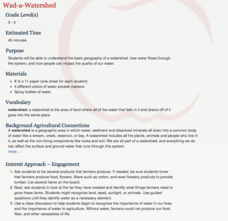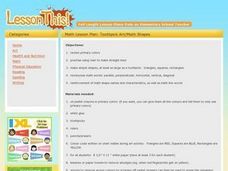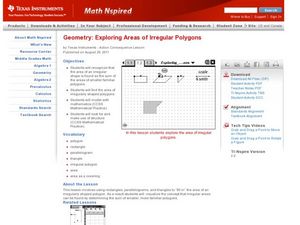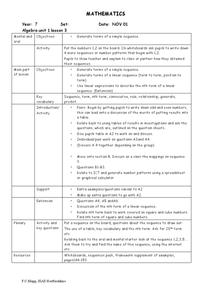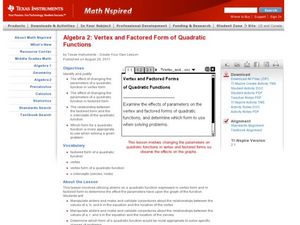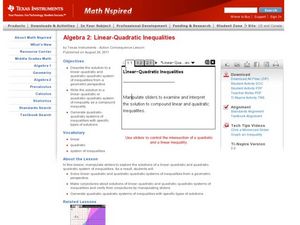Cornell University
Magnetic Mad Libs
Examine the science behind computer communication. After defining the properties of magnets, learners simulate how a computer hard drive works by sending each other binary codes using the magnets. They use these communications to...
Cornell University
Mechanical Properties of Gummy Worms
Learners won't have to squirm when asked the facts after completing an intriguing lab investigation! Hook young scholars on science by challenging them to verify Hooke's Law using a gummy worm. Measuring the length of the worm as they...
Education Outside
Papermaking
Imagine recycling food scraps and using them to make paper. The directions are all here in a seven-page packet that details several paper-making strategies.
Agriculture in the Classroom
Wad-a-Watershed
What kind of impact do humans have on watersheds? Find out in a lesson that defines, explores, and promotes ways to protect our watersheds. The ultimate goal of the lesson is for learners to discover how a watershed is impacted by...
Curated OER
Understanding Place Value
Fifth graders study place value. After forming teams, they play a game called, "Who Can Line Up the Number." Students observe numbers in expanded form and place representative digits in the correct order.
Curated OER
Toothpick Art
Learners review primary colors and practice making straight lines. In this visual arts instructional activity, students paint simple shapes as large as a toothpick, using specific primary colors. During the construction of the shapes...
Curated OER
Odd and Even Numbers
First graders practice number identification by reading a story in class. In this number sense lesson, 1st graders read the story A Wish for Wings that Work and identify objects within the book's photographs. Students count the number of...
Curated OER
Exploring Areas of Irregular Polygons
Students solve for the area of different polygons. For this geometry lesson, students identify and differentiate between regular and irregular polygons. They use properties of irregular polygons to solve problems.
Curated OER
Simple Sequence
Students identify the nth term in a sequence. For this algebra lesson, students generate sequences given the formula for each sequence. They find the formula given the sequence.
Curated OER
Rose Curve
Arcsine will be better understood and applied through prediction the number of petals on a rose curve using polar equations. Students relate rose curve to siusoidal functions using the Ti navigator.
Curated OER
FREE STANDING STRUCTURE
Students demonstrate basic construction skills by building a free standing structure. They compute the cost of the structure.
Curated OER
Pythagorean Theorem
Learners find the different ratios of a triangle. In this geometry lesson, students use the Pythagorean Theorem to solve for missing sides and angles on a right triangle. They use a robot to create a right triangle.
Curated OER
Solving Systems by the Elimination Method
Pupils solve equations by elimination and use the TI to graph the lines and find the point of intersection.
Curated OER
Fixed Perimeter Rectangle
Teach how to solve for the area and perimeter of rectangles. For this geometry lesson, students are given fixed perimeter rectangles and asked to find the area and side length of the rectangles. they draw their rectangle on the navigator...
Curated OER
Vertex and Factored Form of Quadratic Functions
Students graph quadratic equations. In this algebra lesson, students solve quadratic equations by factoring. They identify the end behavior of the graph.
Curated OER
Linear-Quadratic Inequalities
Young scholars graph linear and quadratic functions. For this algebra lesson, students create graph with specific coordinate points. They use the Ti to visualise and differentiate between the two functions.



